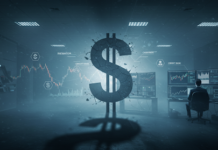It was easy to shrug off that emerging class of Millennial investors when they first started dabbling in stocks without playing by the rules of tradition. But that shrug was a mistake that became very clear when the democratizing zero-fee trading app Robinhood soared to heights unimaginable.
Now, Millennials are calling more shots that Wall Street had anticipated, and what they want to invest in isn’t what their parents wanted.
The magnitude of this change is more fully understood when you consider that Millennials—also known as Generation Y—number some 80 million in the U.S. alone.
They aren’t just dabbling in the market now; they are emerging as the dominant force.
In the coming years, they will continue to be a major force in the economy, even more so as they mature.
Recent studies show that 29% of wealthy investors are under age of 50 and control 37% of investable assets.
When it comes to trading, Millennials are taking a completely different approach from that of their previous generations, Baby Boomers and Generation X. No longer are stock tips being passed along on golf courses or at country club restaurants—or even via telephone in the traditional manner.
Today, all it takes is a few clicks on an app for Millennials to review a prospectus, get advice, and even make an investment.
The vast majority of people between the ages 20 and of 35 are more likely to take advantage of online tools for monitoring their investments, and that’s changing the market irrevocably.
But the even bigger change is this: When investing, millennials are prioritizing social, environmental issues and the greater good. That’s long form for ESG (environmental, social and governance) investing, also known as “impact investing”. They’re holding everyone accountable, and they can make or break reputations—and share prices along with them.
Millennials are focused on using their family wealth to tackle global issues such as climate change and human rights.
With more than 85% of Millennial recently surveyed expressing an interest in or owning social impact investments, the power is clear. That’s why impact investments have outperformed the benchmark for eight out of the last 10 years.
In 2020, that Millennial power combined with the Robinhood phenomenon led to a massive surge in Tesla, for one, as this generation pushes the use of electric vehicles as one answer to climate change.
It’s also manifested as widespread mistrust of big banks. And indeed, it was in early 2020 that BlackRock—a fund that focuses heavily on an ESG portfolio—largely took over Wall Street.
The biggest stock market question of the year has, in fact, become this: Should you follow Millennial investing or legends like Warren Buffett?
The answer isn’t as simple as you might think, and it’s a numbers game more than anything.
Back in 2018, Millennials still loved Buffett and hung on his every word. Now the investing novices has flown the coup and feel they don’t need the legendary investor anymore.
By 2020, mostly Millennial traders on Robinhood were actually betting against the legends—a pastime that really started to soar amid the COVID lockdown. And not only that, but they started winning—at least in the short term. They made Wall Street think–and think again.
They started betting against Buffett on airline stocks, piling into them when Buffett was divesting. Then, they started betting against another legendary investor, Carl Icahn, and Hertz.
The result of this Millennial contrarianism in June 2020 was a victory for the novices. As Business Insider noted, JETS ET surged 55% when Buffett sold his assets and ‘Robinhooders’ stepped in instead.
They also drove up the price of Hertz after it declared bankruptcy with massive debts and no revenues.
In the longer-term, will they be right while Buffett is wrong? It’s hardly relevant at this point. It matters less who is right and who is wrong on the fundamentals if Millennials come out in such huge numbers that they control sentiment despite the fact that airline recovery isn’t really looking very good.
It’s led to a new phenomenon on the stock market: Newbie punters who don’t know anything and don’t care that they don’t know are storming the market. These new kids in investing town don’t value a company based on net present value of future cash flow expectations. They’re making a mockery of the traditional traders, and their “Bro Down” power is enough to have a massive impact on the market going forward.
























